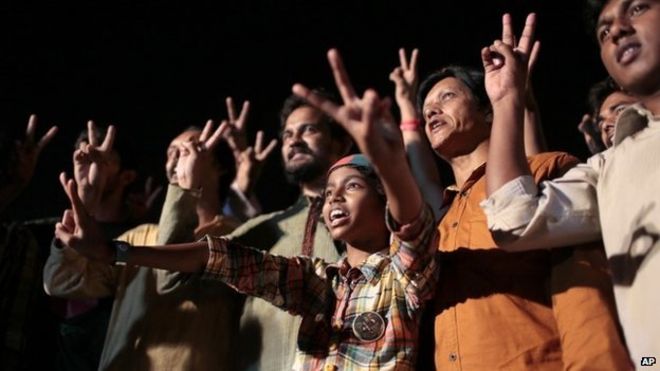Last Saturday, Bangladesh executed a senior Islamist party leader, Mohammad Kamaruzzaman, for war crimes committed during the country’s 1971 war of independence from Pakistan.
In the new nation’s early turbulent years, the desire to move on led to an almost collective amnesia. Governments dodged the messy process of trying war criminals when those accused were living among them.
Successive military rulers seeking any sliver of legitimacy gradually rehabilitated Islamists accused of war crimes politically and economically – to take advantage of their minor yet crucial soft vote bank.
Political opportunism?
After years of pressure from a dedicated group of campaigners, when the current government of Awami League, the party which led Bangladesh into independence, finally started the war crimes trials in 2010 one could not ignore a whiff of political opportunism.
By now many of those suspected Islamists had become a mainstay of the opposition bloc. Some had even been government ministers in the past. Initial optimism gave way to criticisms from Western governments and international human rights groups surrounding the robustness of the judicial process, as it was a domestic set-up.
Then two years ago, a group of secular bloggers gathered at the capital’s Shahbag roundabout demanding the execution of one of the convicted Islamists, after the court handed down a life sentence.
It captured the imagination of thousands of urban, middle-class young men and women, all chanting, “Hang the Razakars”.
As their threat to the Islamists was carried live on television – the line between secular, liberal values and mob justice was blurred by pent-up nationalism.
While they did get what they wanted – a sentence of death, from an appeals court – it was soon to be a case of unintended consequences.
Slow descent
In moderate Muslim-majority Bangladesh, decades of stealthy Saudi Salafist funding for madrassas and Islamic charities has created an underclass of poor, working-class young men shifting to a more puritan and confrontational strain of the religion.
Now, feeling threatened from all sides, the Islamists came out of the woodwork. One afternoon that May, hundreds and thousands of madrassa students in traditional Islamic garb and skullcaps gathered at a different Dhaka roundabout – now showing their real numbers. Their favourite war cry, “Hang atheist bloggers”. A new battle line was drawn.
Standing at the gates of Dhaka Central Jail well past midnight on the comfortable chill of that December, waiting with other reporters for the body of the first person to have been executed for war crimes to be carried out in an ambulance, I kept wondering what next. Not much, it appeared – that night, or the weeks that followed.
Then it started – the slow descent. Back in London, as I was the reading the news of another Islamist getting hanged this week, I read the last article on the Bangladesh timeline, barely two weeks old: secular blogger hacked to death in broad daylight by Islamists.
Remember red lines? Well, this one just turned deep red, again.
Source: BBC










